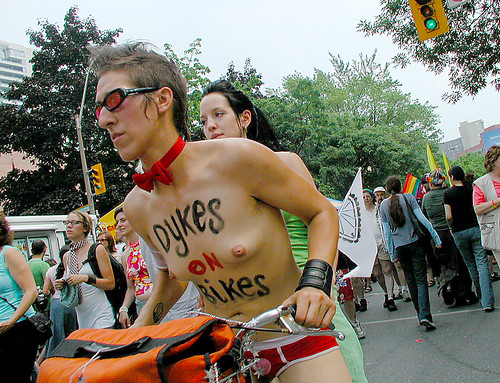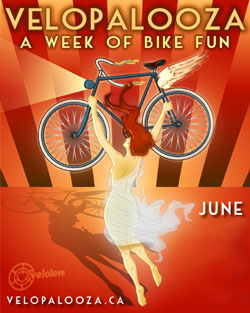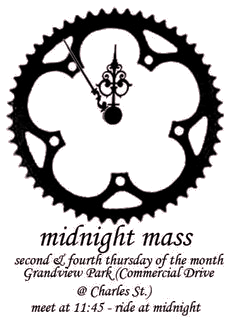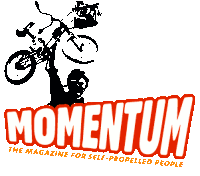When cars are involved, the arguments take on other-worldly tones.
The three biggest, most profound issues of our time, climate change, oil prices, and resource wars, strangely all involve in intimate ways the private car. And so it is that that relatively unassuming and hitherto background prop, the car, has emerged as the one object that lies at the very fulcrum of vast, historically transformative events that are in this period remaking the world completely.
While scientists, environmentalists and policy formulators in both business and government are well-versed in all the data about cars—their proliferation, their efficiency, their technology, and so on—cars are ultimately related to the three big issues not through what they are in and of themselves, but rather through social attitudes towards them.
Change both of the kind being forced by circumstances arising around the three big issues and of the kind arising from pressures within populations and economies related to them, will not find manifestation or expression within data about cars. It will instead drive and be driven by the more fluid, indeterminate and loosely-geared world of social attitudes toward cars as detected in everyday life and small-talk banter taking place amongst casual communities bobbing throughout cities big and small around the world. How apparently petty social attitudes shift regarding cars will be the single most important determining factor in how the world is fated to be transformed by, and itself transform, the three big global issues of our era.
Cars and social attitudes toward them in one guise or another form the subject of casual and petty everyday discussions in Vancouver virtually constantly now, particularly among activist groups and talk radio. In these discussions, we can detect where the tectonic plates meet and where the pressure points are that will produce the epicenters of sudden change when that pressure is triggered to release. A look at the style and content of discussions in Vancouver arising around cars should provide clues about where to watch most closely. It isn’t the obvious places. Social attitudes about anything are pressed and folded in sometimes far away seemingly unrelated regions.
The current state of discussions in which cars figure prominently is chiefly characterized today by sides being clearly staked and jealously guarded, and opposition to sides portrayed in their most extreme and reductionist forms.
John McComb, Charles Adler, Bill Good, Christy Clark, and sometime fill-in Michael Smyth, form the vanguard of show hosts at leading talk radio station in Vancouver, CKNW. They have each on several occasions characterized arguments against provincial government plans to vastly expand the capacity of Highway One, the main east-west thoroughfare between Vancouver and its suburbs (which out-populate it four-to-one), as the complete denial of the personal car. They each have presented the issue as though the range of public policy choices is restricted to two extremes: allow cars to whatever degree the unfettered market determines with no state intervention beyond providing ever expanding blacktop, or disallow all cars all the time and everywhere. “What do they expect us to do?!” goes the oft-repeated refrain, “Carry grandma on the back of a bicycle to Langley?”
Predictably, alarmed listeners pick up on the theme, phone in to these shows, and parrot the hosts, characterizing all suggestions for more public transit and bicycle lanes as policies that would force them and their families of six out of their minivans and away from their hockey practices. “My mother,” McComb recently exclaimed hysterically during his afternoon show, which plays to drivers driving home from work, “can’t be expected to carry her groceries home up the steep blocks in North Van, for crying out loud,” as though that’s what the construction of bicycle lanes promises.
Adler routinely smears public transit as wholly unacceptable to him on a personal level, as though increased public expenditure on buses spells some sort of police-enforced command that he must anyway go on a bus if he wants to or not. Smyth repeatedly characterizes arguments against expensive doubling of Highway One as a kind of plot to install dictatorial authoritarianism in place of democracy.
Bill Good seems to never understand what a debate, any debate, is, and seems crippled by an extraordinary and puzzling inability to grasp the nut of issues in general. Don’t be fooled: he’s smarter than that. With his bumbling Lieutenant Columbo act, he conveys a kind of wisdom through willful ignorance, a thing usually called “common sense” to distinguish it from “informed sense” or “studied sense.” By this he effectively propagates the very popular and certainly comforting notion that no public debate is really required on especially the most important issues. “Common sense” we already have—no need to think or learn anything more beyond what we already know, or rather “feel.”
CKNW and radio in general typically escapes the widespread condemnation heaped on print media like the Vancouver Sun and National Post, but it is easily as influential a medium as daily local newspapers, if not more so, particularly on issues such as transportation policy since radio is the medium flowing through drivers while driving. Its ownership should be as scrutinized for motivations and agendas as much as the daily newspapers routinely are.
Surely such a consistent, repeated and extremist view occurring across the range of time slots every day points to some sort of corporate policy at CKNW owner Corus Entertainment, itself majority owned by the Shaw family, owners of giant Shaw Communications, based in Calgary, the capital of the nation’s thriving oil industry.
It’s either that or a surprisingly closed company culture exists in the milieu of the radio station in which the views of a majority of their listening market go completely unrecognized. But that would require all hosts at CKNW to lead lives in which they encounter no one outside a small established circle of friends and family, ever. That would be harder to believe than that there is a corporate head office instruction to hosts regarding key public policy debates, in particular transportation policy.
At the same time, some activities and statements endorsed by some bicycling advocates, usually the more prominent ones, seem unnecessarily provocative as well, and just as closed to thoughtfulness and intellectual reflection. Nothing exemplifies this more than the Critical Mass bike tour of city streets which occurs every last Friday of the month—during rush hour.
The deleterious effect is intended. Sometimes hundreds of bikes flow past and block cars in all directions on the busiest streets, creating delays that can last ten minutes. (That may not seem like much, but consider that ten minutes of saved commuting time to Langley is the best promise made by the government spending $3 billion to double the capacity of Highway One).
The philosophy of the Critical Mass bike ride was inspired by public parades of oppressed groups in decades past that have effectively served to bring to light unjust conditions, as Pride parades have done for gays and lesbians, and civil rights marches had done for blacks in years past. The idea is, cyclists in numbers taking over the streets would reveal to the larger public an oppressed minority—those who prefer bikes—thereby generating the attention necessary to see their oppression redressed.
The most repeated and most enthusiastically embraced chant on Critical Mass bike rides is, “We aren’t blocking traffic, we are traffic!” This chant serves to cement a solidarity with oppressed and marginalized groups everywhere who similarly plead for equal rights compared to a majority culture they are immersed, or lost, within. The point they wish to make is that bicycling infrastructure and increased respect for bicyclists on roads would not entail special treatment for them, but would merely provide equal treatment to what motorists enjoy.
It’s a valid and worthwhile point to make, but the Critical Mass technique for making it fails for the same reason paid reactionaries at CKNW and other media fail: Critical Mass enthusiasts seem to assume the people behind the car windshields like only cars, use them all the time and wish to force everyone else to as well. But the fight to get transit and bicycling infrastructure is qualitatively unlike civil rights, gay rights and women’s rights movements that the Critical Mass ride is based on in one critically important way: Blacks, gays and women are always blacks, gays and women, and are never white, straight or male. But car drivers are bicyclists and transit users and bicyclists are car drivers, at least from time to time.
Just as irate motorists assume cycling enthusiasts intend to destroy all cars and force everyone onto bikes, cycling advocates seem to assume motorists want to destroy all cycling infrastructure and banish bikes from streets. The Critical Mass ride serves the same exclusionary, extremist ends that the narrow, closed-minded CKNW hosts serve: they encourage the further withering of empathy increasingly rampant throughout an alarming range of policy debates.
We already know that local use of cars is fated for radical transformation in its confrontation with global historical evolutions in climate change, oil prices and wars. And we can already see the consequent beginning of a large transformation in social attitudes toward cars taking place. Not long ago, both sides in such a dispute would have proceeded without questioning the assumption that cars are pleasurable, convenient, identity-enhancing and freedom-producing. Today, both sides presume to the same lack of examination and questioning that cars are costly traps that restrict choices. The public debate on both sides now takes the form of arguments about whether it is possible or not to escape their trap. The radio show hosts look for ways, sometimes ridiculous, to express their real fear about these transformations. The bicycling advocates with missionary zeal work at “tough love” to break the drivers from the trap in the manner of incarcerating a drug addict.
Here then is where there is lubrication between the plates that might let loose the little slippage that causes the earthquake that realigns the tectonic plates: is there a mass consciousness-awakening to the fact that we all now agree on at least one thing, that cars have set us in a trap? That would mark a tremendous shift in social attitudes toward cars in the space of just a decade or so.
Labels: assumption, car cult, cm, dialogue, stupid media
 Vancouver Critical Mass
Vancouver Critical Mass















